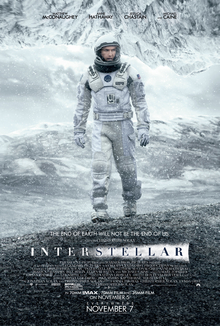A blog formerly known as Bookishness / By Charles Matthews
"Dazzled by so many and such marvelous inventions, the people of Macondo ... became indignant over the living images that the prosperous merchant Bruno Crespi projected in the theater with the lion-head ticket windows, for a character who had died and was buried in one film and for whose misfortune tears had been shed would reappear alive and transformed into an Arab in the next one. The audience, who had paid two cents apiece to share the difficulties of the actors, would not tolerate that outlandish fraud and they broke up the seats. The mayor, at the urging of Bruno Crespi, explained in a proclamation that the cinema was a machine of illusions that did not merit the emotional outbursts of the audience. With that discouraging explanation many ... decided not to return to the movies, considering that they already had too many troubles of their own to weep over the acted-out misfortunes of imaginary beings."--Gabriel García Márquez, One Hundred Years of Solitude
Search This Blog
Saturday, June 4, 2016
Interstellar (Christopher Nolan, 2014)
All contemporary space travel sci-fi operates in the shadow of 2001: A Space Odyssey (Stanley Kubrick, 1968), and the best you can do -- as Interstellar's Christopher Nolan and co-scenarist Jonathan Nolan do -- is to acknowledge it without imitating it. I think the fact that production designer Nathan Crowley's robots are slab-like (rather than the android designs we're familiar with) is one nod to Kubrick's film. But more to the point is that 2001 and Interstellar are both about human evolution. Kubrick makes the point more economically than Nolan does, without resorting to theories about wormholes and black holes allowing humans to travel beyond the confines of the fixed speed of light in order to discover an escape from the fate of Earth. In Nolan's film, that fate is dire, a world in which food shortages have led to mass starvation and a cultivation of anti-scientific attitudes. In Nolan's not-so-distant future, bright young people are being indoctrinated with what sounds a lot like current dogma in the more backward parts of the United States. (I'm trying not to say Texas here.) The children of former NASA pilot Joseph Cooper (Matthew McConaughey) are being told not only that farming is a nobler profession than engineering, but also that the United States faked the Apollo moon landings in order to deceive the Soviet Union into a buildup in space and military technology that would ruin the Soviet economy. Crazier theories have been advanced even in the current presidential election campaign. The trouble with the film is that eventually it has to come back to Earth and provide a rather muddled and disjointed resolution of the crisis it has presented and tried to solve. Meanwhile, the film is also tasked with trying to explicate for a non-scientific audience some cutting-edge theories in physics and cosmology. That necessitates an almost three-hour run time in which the audience is alternately dazzled by special effects and subjected to head-spinning theories. Some very attractive and skilled actors are enlisted in the effort: McConaughey, Anne Hathaway, Jessica Chastain, Michael Caine, Matt Damon, John Lithgow, and Ellen Burstyn among many others. But entertaining as it often is, Interstellar never quite makes it past the point of gee-whiz tinkering with some intriguing ideas into potential classic movie status.
